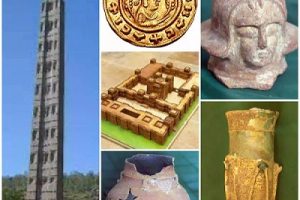The very force that ensured Ethiopia’s uninterrupted existence for several millennia was not a chance or a charm, nor is it the protection of super powers or the UN’s impeccable justice and its sacrosanct treaties. It was the valor, unreserved sacrifice, and perseverance of Ethiopian patriots who defended the nation’s sovereignty and rights to this day. This week Ethiopia remembers her son and daughter who gave their life and received injuries while defending their country from aggressors.
Ethiopia is a unique African nation in many respects. Unlike other African states, Ethiopia does not include Independence Day in its list of public holidays. The reason is all too clear. Since its foundation 3000 years ago, Ethiopia has always been an independent state. This is one of the rich histories that warrant Ethiopians to hold their head high where ever they may go.
What Ethiopians celebrate instead of Independence Day is victory days. These are days on which they scored a decisive historical victory against belligerent aggressors who came to snatch their freedom as citizens and the sovereignty of Ethiopia.
Of the 13 Ethiopian public holidays, two of them are victory days. few countries I know of celebrate public victory days in commemoration of various victories scored in different centuries. –the first one is Adwa victory scored in the late 19th century, while the other is patriots’ Victory day marking the victory of another generation of Ethiopians during the second quarter of the 20th century. Each year Ethiopians celebrate Adwa’s victory on the last week of March while they celebrate patriot’s victory day this week [at the beginning of May].
Although not recognized as national public holidays, there are also other victory days marking a turning point in Ethiopian history and should have been observed as public holidays. All those victories Ethiopians scored against foreign invaders came at huge sacrifice paid by the patriots of every generation. That is why most of the events covered in the Ethiopian history books are about war.- the struggle to defend Ethiopia’s freedom and sovereignty.
Ethiopians’ fight to defend their motherland cascades through the generation and continues to this day. This is so because Ethiopia’s enemies have never ceased to pursue their ambition of dismantling Ethiopia, and erasing the Ethiopian identity in one way or another.
On May 5, Ethiopia observe The 80th Anniversary of the Ethiopian patriots’ victory over the aggression of fascist Italy, which is the second victory that came almost half a century after the first victory against the Italian invasion, the Adwa Victory. Patriots of ancient Ethiopia will parade at Arat Kilo around the Miyazia 27 Victory monument, which commemorates Ethiopia’s five years of bitter struggle and spectacular victory over barbaric Fascist Italy. The veteran patriots, men, and women, in their ancient warrior costumes decorated with medals of honor, would perform unique war songs and dances called [kererto, and Fukera], proclaiming their valor in the continuous battle for Ethiopia’s sovereignty and freedom from foreign domination.
As Ethiopians celebrate the Patriots’ Day, they remind themselves of the disregard of the international community for Ethiopia’s demand for justice and respect for international treaties against the aggression of fascist Italy. The patriot’s victory day is also a reminder that Ethiopia cannot count on anybody but its citizen to defend its rights and freedom.
Ethiopian patriots of the past generations gallantly defended their country, facing adversity, betrayal, and treachery from foreign powers. That has left a strong legacy of patriotism for the present generation. Ethiopians have continued to this day to exert collective resistance against foreign interference and aggressions aiming to jeopardize its sovereignty and territorial integrity.
However, it has to be underlined that Ethiopia’s enemies are more potent and dangerous as an existential threat to the nation they have been ever in the past. There are two reasons explaining this fact. The first is the anti-Ethiopia forces are more organized and coordinated than ever before. They have secured well-organized divisive groups that serve them as an extension.
The second point is Ethiopia’s enemies have realized the underlying factor that enabled Ethiopia to remain invincible against the influence of foreign powers. They do know if Ethiopians stand united, they would be unstoppable, capable of doing the seemingly improbable things like defeating the European army twice and building the largest African dam on Abay by their own means.
The historical enemies of Ethiopia and allies have devised several strategies to target the bond that binds the multi-ethnic and multi religious Ethiopians for centuries. They have allocated resources, recruited traitors, and employed the latest technologies to disintegrate the social bond, destabilize the economy through sabotage and cyber attacks, to promote chaos by sponsoring international [like Al Shabaab] and local [like TPLF, Shene, Gumuz insurgents]terrorists.
The ethnic-based attacks on a civilian in several corners of the country, the social media hate campaigns of religious extremists, the street violence, the loss of life, and the destruction of private and public properties by religious fanatics are all well planned and executed to instigate an all-out ethnic and religious conflict across the nation.
To thwart the latest dangerous approach of Ethiopia’s enemies, all political forces truly committed and patriotic enough to prioritize the survival of Ethiopia as a sovereign state, should come together and work as a team as the way anti-Ethiopian forces do. It is only after ensuring the survival of the country, that one can ask about rights, and political power, and debate economic policies.
Community leaders, religious scholars, and party officials have begun sensitizing their respective communities on the divisive plot of Ethiopia’s enemies. They have warned the youth to be patriotic like their forefathers and watch out never to fall victim to the hate propaganda of anti-Ethiopian forces and become a tool for the destruction of their own country.
It appears that the struggle of Ethiopians to protect the sovereignty of their nation against adversary powers is far from over. The struggle is more intense and arduous than in the past. In that sense, the celebration of such victory days like the patriotic day is a time for the youth to salute the national flag of Ethiopia and reaffirm their commitment to their patriotic duties.
Like the days of the Adwa in 1896., like the days of the aggression of Fascist Italy in 1942, history has challenged the present generation of Ethiopians to prove if they can emulate their forefather by scoring the third epic victory day over anti-Ethiopian forces. Time will tell. But, If only they manage to maintain their unity, Ethiopians would surely win.
BY SOLOMON WASSIHUN
THE ETHIOPIAN HERALD THURSDAY 5 MAY 2022





